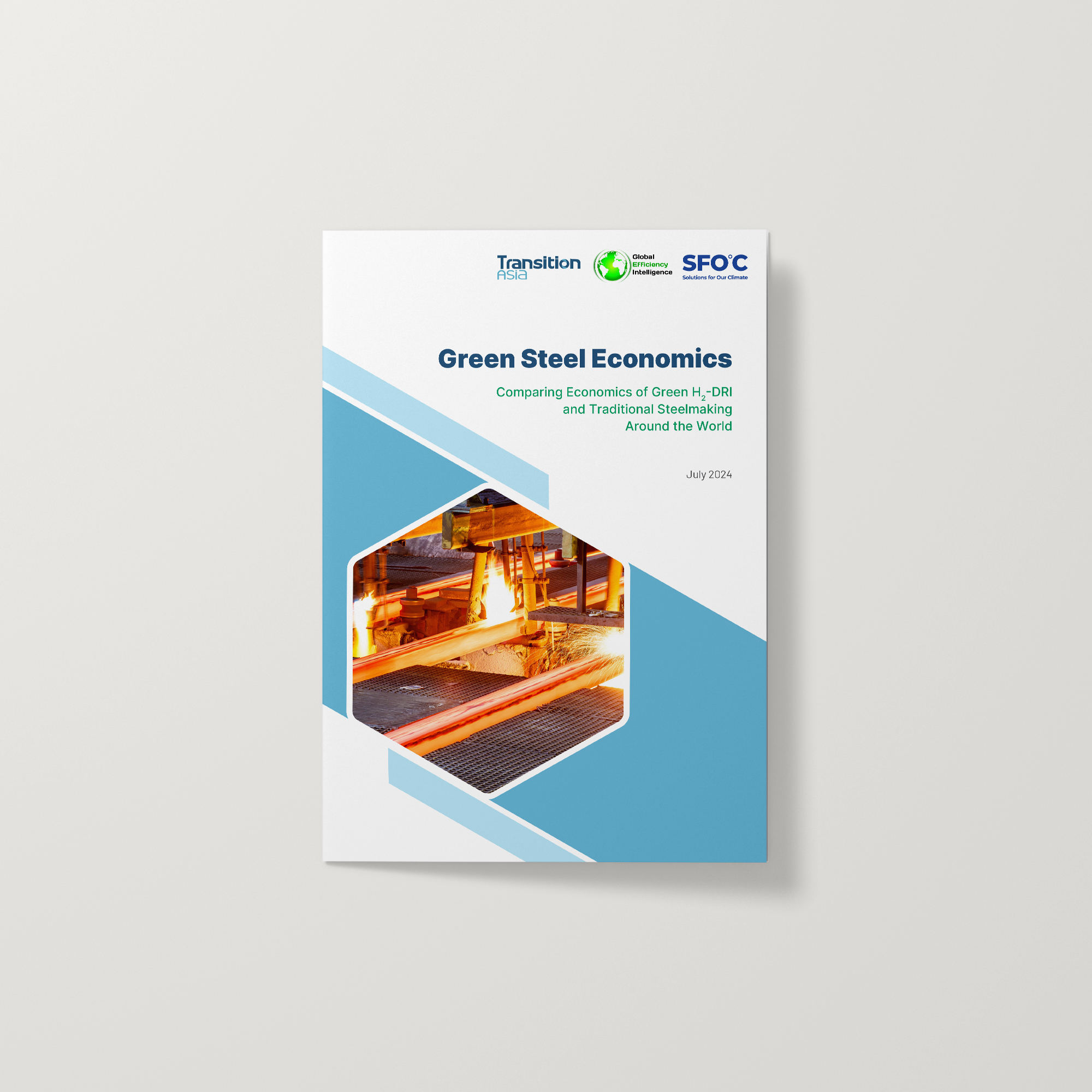
About
The primary source of emissions in Korea's steel industry is the blast furnace, a coal-based steelmaking facility. This report presents a scenario for phasing out the 11 operational blast furnaces in alignment with the remaining carbon budget for Korea’s steel industry to meet the global 1.5°C target and argues the case for an immediate shutdown of coal-based steelmaking facilities.
Executive summary
POSCO has pledged to reduce carbon emissions by 10% from its baseline by 2030. However, the extension of the lifespan and the suspected expansion of the Gwangyang No. 2 blast furnace, which began this year, could increase the required reductions to as much as 12.505 million tonnes.
According to scenarios examining the remaining carbon budget (allowable carbon emissions) for the Korean steel industry to meet the 1.5°C target, four coal-based blast furnaces need to be shut down by 2030. The Korean steel industry will risk depleting its carbon budget very soon if it fails to begin phasing out these facilities immediately.
The relining of the Gwangyang No. 2 blast furnace signals an intention to continue emitting huge volumes of carbon for at least another 15 years. This will clearly undermine not only Korea’s national emissions reduction goals and its commitment to the internationally agreed-upon 1.5°C target, but also POSCO’s own carbon-neutral roadmap. In addition, the decision to reline the blast furnace risks exacerbating the global surplus of steel and hindering the efforts to meet the rising global demand for green steel.
Instead of investing in maintaining coal-based steelmaking, POSCO should prioritize transitioning to green steel. The company should also implement the following measures to demonstrate its commitment to decarbonization:
Transparently disclose reduction alternatives and quantitative reduction plans for the period leading up to the commercialization of hydrogen-based direct reduction ironmaking (H2-DRI).
Stop the ongoing relining of the Gwangyang No. 2 blast furnace, as it does not align with achieving the global 1.5°C target and carbon neutrality, and declare its immediate shutdown.
Incorporate a clear plan for the phased shutdown of all blast furnaces within the carbon neutrality roadmap.
Media coverage
- M-Economy News, [Korean] ‘POSCO, Global “1.5 Degree Target” Goes Backwards? What Happened?’
- G.Economy, [Korean] Is the closure of the second blast furnace in Gwangyang a necessity for the Korean steel industry?
- Seoul Economy, [Korean] Korea's steel industry has 550 million tonnes of carbon budget left...how to meet 1.5 degrees
- Business Post, [Korean] Extending blast furnace lifespans in the steel industry is a misguided investment; priority should be on advancing hydrogen-based steelmaking
- Asia Economy, [Korean] POSCO needs to halt Gwangyang 2 blast furnace's relining to achieve carbon neutrality
- eKorea, [Korean] Why do environmental groups oppose the relining of POSCO's Gwangyang No. 2 blast furnace?
- Economic Daily, [Korean] "Is carbon neutrality possible without closing blast furnaces?" SFOC points out the issue with relining blast furnaces.





















![[CREA-SFOC] Unveiling the Truth Behind Blast Furnace Pollution_South Korea](https://content.sfoc.tapahalab.com/images/research/C4Xvdme.jpg)




![[이슈 브리프] 탈석탄 투자 가이드라인](https://content.sfoc.tapahalab.com/images/research/tJRidme.jpg)
![[이슈 브리프] 신설 석탄발전소 가치평가 결과와 시사점](https://content.sfoc.tapahalab.com/images/research/nQCGime.jpg)




